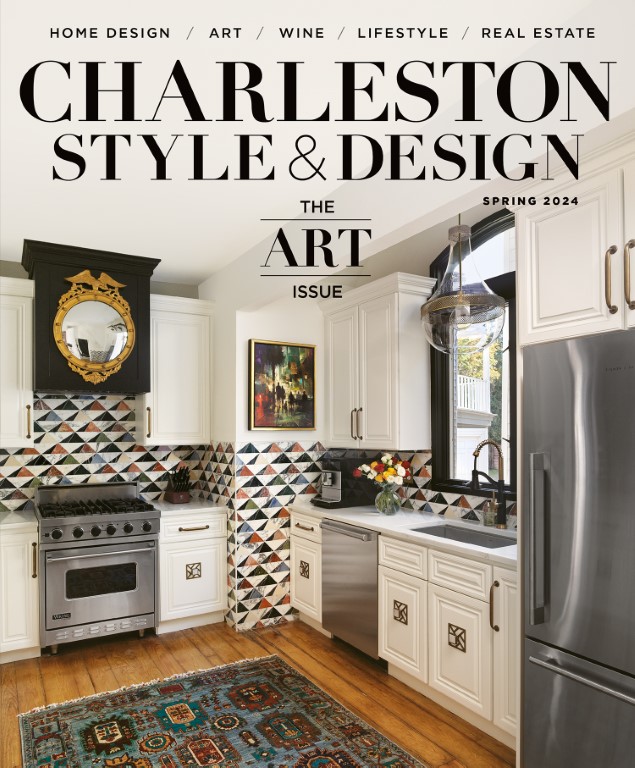It’s hard to imagine a successful furniture business without a showroom, but don’t tell Capers Cauthen, owner of Landrum Tables. Word of mouth has served him just fine. “Wherever a table is, that’s the showroom,” he says. In that case, Cauthen has showrooms throughout Europe, 32 states and all over Charleston: Bull Street Gourmet, Prohibition, Whole Foods, Fig and the Fat Hen to name only a handful. Those places all have such a good vibe, could it be because of the tables?
Cauthen marries modern construction technology with local antique wood to create functional, American primitive tables with a sense of history and a dash of Hepplewhite in the slender, tapered legs. You’ll know a Landrum table when you see one by its fine lines and rough wood. They’re earthy and streamlined, rustic yet honed, textured and spare all at once.
“I’m an outdoorsman, so it’s a look inspired by old slab boards and hunt tables,” he says. It’s a look that people have responded well to. Cauthen has been in the table business only six years but already his pieces have been featured in Southern Living, Garden & Gun, Country Living, Architectural Digest, and the most recent issue of Woodcraft Magazine.
You don’t get an eye for this kind of work overnight. Though Cauthen often recounts that he “decided to make a table one day,” it’s a little more complicated than that. Design and preservation are a family tradition. Cauthen’s late father, Henry F. Cauthen, was a well-known Charleston antiques dealer, the longest sitting director of the Charleston Preservation Society and the original author of the book Charleston Interiors, among many other design achievements.
When Cauthen decided to use antique reclaimed wood from his grandmother’s barn to build a table, it was with the knowledge of an experienced builder and someone who has been in the antiques business since he was 16. His roots run deep in Charleston, and his tables are one way to honor that past. “My father left a personal legacy of ‘I made a difference in Charleston.’ I also want to make a difference in that respect,” he says.
Since we last spoke to Cauthen, he’s moved from James Island to downtown Charleston and expanded his workshop, where he continues to make his popular console tables, kitchen islands, and gun and rod stands. Cauthen loves collaborating with others— clients, designers, decorators, builders—to create custom pieces. “I’ve got you and the details for your space in my mind when I make the table,” he says. Clients can choose Charleston-sourced wood, Lowcountry wood or Carolina wood for a certain sense of place. Cauthen is fascinated when working with old wood because, he says: “The wood isn’t consistent. You can build the same table over and over. It’s always a different table.” That sense of respect for and pride in his craft undoubtedly landed him his latest accolade: Cauthen is one of a handful of Lowcountry artisans and one of only 28 in the state to be featured in the South Carolina State Museum’s Carolina Makers exhibit, which runs until February 2016. The exhibit celebrates individual South Carolina crafters who make exceptional products by hand or by using a traditional method.
He humbly credits others for his success: “All my friends, designers, architects and developers who have used my services—I thank them. I could build tables forever, but without support from the community, it would be meaningless.” Cauthen’s latest collaborations include a retail display for the clothing store M. Dumas & Sons, built under the guidance of architect Reggie Gibson, and custom shelving out of old Charleston wood for the Charleston Preservation Society.
When asked if things are going according to plan for Landrum Tables, Cauthen says: “There was zero plan. I built a table; somebody said, ‘Build another one.’ … and I haven’t looked back.”
Tori Coscas is a freelance writer based in Charleston.



